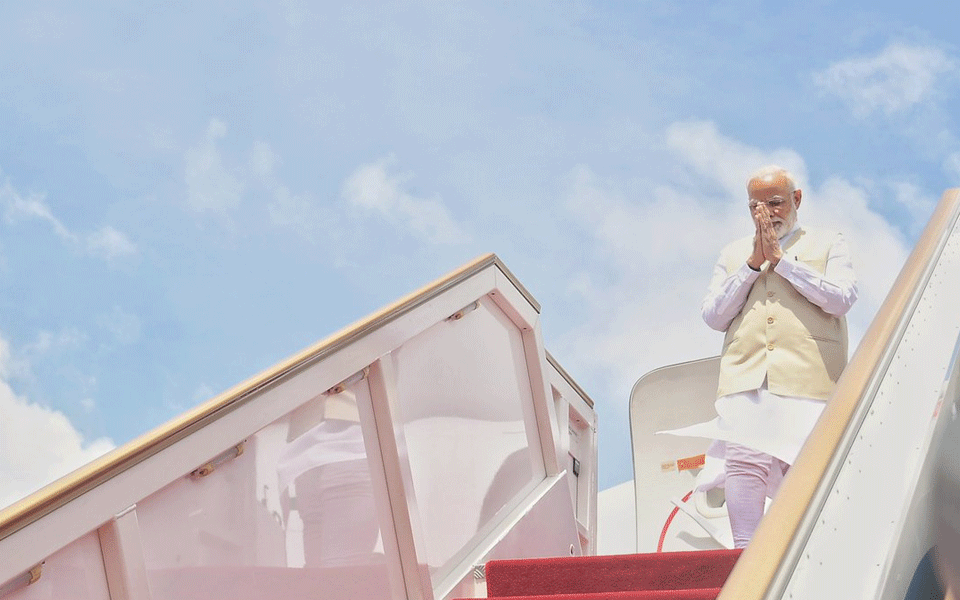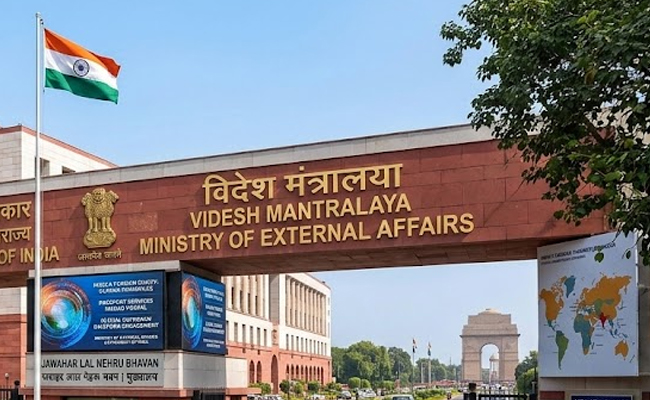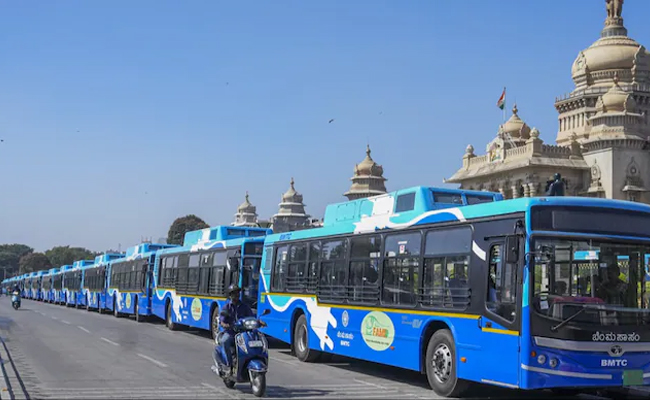Colombo: Prime Minister Narendra Modi arrived in Sri Lanka Sunday on the second leg of his first foreign visit after re-election last month, reflecting the importance India attaches to its 'Neighbourhood First' policy.
Modi was received by his Lankan counterpart Ranil Wickremesinghe at the Bandaranaike International Airport here.
"Happy to be back in Sri Lanka, my third visit to this beautiful island in four years. Share the warmth shown by the people of SL in equal measure. India never forgets her friends when they are in need. Deeply touched by the ceremonial welcome," Modi tweeted soon after his arrival here.
During his day-long visit, Prime Minister Modi will hold talks with President Maithripala Sirisena, Prime Minister Wickremesinghe and Leader of the Opposition Mahinda Rajapaksa. A delegation of the main Tamil party - The Tamil National Alliance - is also expected to meet Prime Minister Modi.
His visit is considered as a sign of India's affirmation of solidarity with Sri Lanka in the wake of the deadly Easter terror attacks in April. Over 250 people were killed in the attack claimed by the Islamic State.
Prime Minister Modi is the first foreign leader to visit Sri Lanka after the Easter terrorist attacks. Modi arrived in Colombo from Maldives where he held wide-ranging talks with Maldivian President Ibrahim Mohamed Solih on Saturday.
"Dear citizens of the Republic of Maldives, I am humbled by the affection I have received in you wonderful nation. Thank you for being great hosts. I also thank the Government for the hospitality. This visit will lead to stupendous outcomes, adding vigour to bilateral ties," Modi tweeted.
During Modi's visit, the two countries signed six agreements to strengthen bilateral cooperation in key areas like defence and maritime security. A coastal surveillance radar system and a composite training centre for the Maldives defence forces were jointly inaugurated by Modi and Solih.
Prime Minister Modi was also conferred with the Maldives' highest honour "Rule of Nishan Izzuddeen" during his visit. He also addressed the Maldivian Parliament, the Majlis, an indication of India's important position in the neighbourhood.
Giving a push to enhance connectivity, India and Maldives also agreed to start a ferry service from Kochi in Kerala to the Maldives.
His visit to Maldives and Sri Lanka demonstrates the priority that India attaches to the SAGAR (Security and Growth for All in the Region) doctrine, the sources said.
Let the Truth be known. If you read VB and like VB, please be a VB Supporter and Help us deliver the Truth to one and all.
New Delhi (PTI): The Ministry of External Affairs (MEA) has set up a control room to assist those affected by the escalating crisis in West Asia.
The MEA has said almost one crore Indian citizens live in West Asia and their safety and well-being is of "utmost priority" for New Delhi.
As the Iran-US conflict widened, the Indian embassy in Iran moved hundreds of Indian students from the Iranian capital of Tehran to safer locations.
"A Control Room has been set up in the Ministry of External Affairs in view of the current situation in West Asia and the Gulf region," the MEA said on Wednesday.
"The Control Room can be contacted from 9 am to 9 pm at: 1800118797 (Toll Free) +91 11 2301 2113, +91 11 2301 4104, +91 11 2301 7905," it added.
The US launched military strikes on Iran on February 28, killing Iranian Supreme leader Ali Khamenei.
Following the military offensive, Iran has carried out a wave of attacks mainly targeting Israel and American military bases in several Gulf countries, including the UAE, Bahrain, Kuwait, Jordan and Saudi Arabia.
The MEA on Tuesday noted that almost one crore Indian citizens live and work in the Gulf region, and their "safety and well-being is of utmost priority."
"We cannot be impervious to any development that negatively affects them," it said.
The MEA said New Delhi will continue to closely monitor the evolving situation and take relevant decisions in the national interest, adding it is in touch with the governments in the region as well as other key partners.
A Special Control Room has been set up in the Ministry of External Affairs in view of the current situation in West Asia and the Gulf region. Details are as below ⬇️
— Randhir Jaiswal (@MEAIndia) March 4, 2026
🔗 https://t.co/nK3d6SY9Pa pic.twitter.com/v2EhUI5B1x




